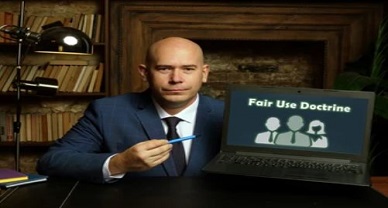Analysing Service Of Arbitral Award To The Directors Of Company In Light Of Company Law Principles
Introduction
A corporation formed under the terms of the Companies Act is regarded a juristic person with a corporate personality. The House of Lords recognised in the landmark decision of Salomon Vs. Salomon & Co. Ltd.,[i] that, in the perspective of the law, a corporation is totally independent and different from its shareholders or directors. This legal separation assures that the company’s directors are not personally liable for the company’s obligations, save to the degree permitted by law. However, when directors have consented to be personally accountable for the company’s responsibilities, the decree or judgement might be enforced against them. When a decree or award is issued against the corporation, directors and shareholders are generally immune from responsibility.
Nonetheless, the notion of removing the corporate veil is permissible under the law. In India, the courts have made an exception to the Salomon Vs. Salomon & Co. Ltd. principle, allowing it to apply in situations of fraud, inappropriate behaviour, and similar conditions. However, it is pertinent to note merely on the grounds of fraud or inappropriate conduct, one cannot pierce the Corporate Veil with respect to serving of award u/s 31(5) of the Arbitration and Conciliation Act, 1996. Let us discuss the said Doctrine for further clarity.
Doctrine Of Lifting Of Corporate Veil
In the case of Balwant Rai Saluja & Anr. Vs. Air India Ltd. & Ors.,[ii] The Supreme Court clarified the idea of penetrating the corporate veil. This principle reinforces the business’s autonomous legal rights and duties by functioning as an exception to the idea of a corporation being a distinct and separate entity from its shareholders and directors. The idea of penetrating the corporate veil is only used in certain circumstances, such as when it becomes clear that the business was founded as a masquerade or a mere facade produced by people in charge of the corporation to avoid culpability.
The notion of a corporation as a distinct legal entity is central to modern corporate law. When individuals join a corporation, they pool their resources and efforts in exchange for limited liability protection. This precaution protects their personal assets from the company’s debts and obligations, ensuring that their financial risk is limited to their investments in the company’s shares in most situations. This separation of the firm from its owners and management is critical for stimulating entrepreneurship and investment since it reduces the threat of personal insolvency as a result of business failure.
[Image Sources : Shutterstock]
The Vodafone case[iii] referred to a decision by the US Supreme Court in United States v. Bestfoods.[iv] The US Supreme Court held in that decision that, as a general rule in corporate law, a parent corporation is not liable for the activities of its subsidiary. However, the court emphasised that the corporate veil can be broken in certain situations, and the parent firm can be held accountable for the subsidiary’s activities. This would only happen if it could be demonstrated that the corporate structure is being utilised for improper reasons and that the parent business is directly involved in the violation. The parent firm cannot be held accountable simply by owning, controlling, or managing the subsidiary.
The concept of “piercing the corporate veil” deviates from the premise that a corporation is a separate legal entity from its shareholders, with its own set of rights and duties. It intends to ignore the company’s distinct identity and credit its activities to people considered to have direct influence over its operations. The roots of this theory were examined in the seminal case of Salomon v. Salomon & Co. Ltd.,[v] in which Lord Halsbury LC declared, “a corporation must be recognised as an independent entity with its own rights and duties, independently of the motivations of its founders.”
Following the Salomon decision, most cases applied the piercing the veil concept to instances in which the firm was regarded a “sham” or a “facade.” However, there was considerable confusion about when this doctrine may be used.
In recent times, the law has solidified around the six principles formulated by Munby, J. in Ben Hashem v. Ali Shayif.[vi] These are the six principles:“…
- Simply owning and controlling a firm is inadequate reason to pierce the corporate veil.
- Even if there are no third-party interests in the firm, the court cannot breach the corporate veil purely for the sake of justice.
- Only misbehaviour can cause the corporate veil to be penetrated.
- The impropriety in question must be associated with the use of the company’s structure to avoid or conceal liabilities.
- To justify penetrating the corporate veil, the wrongdoer(s) must have both ownership of the firm and impropriety, which means that the company is being utilised or exploited as a tool to conceal their improper activities.
- Even if the firm was not formed with misleading intent, it may be called a “facade” if it is utilised for deceptive reasons during relevant transactions. However, the court would only pierce the corporate veil to the amount required to correct the specific violation perpetrated by individuals in charge of the corporation.”
According to the preceding cases, the theory of piercing the veil permits the court to disregard a corporation’s distinct legal identity and hold individuals in actual control of the firm responsible. This notion, however, should be utilised sparingly, only in circumstances where it is evident that the firm was only a masquerade or sham constructed by those in power to escape culpability. The intent behind piercing the veil should be to address the wrongdoing committed by the individuals controlling the company. The application of this doctrine depends on the specific facts and circumstances of each case.
Serving Of Award To Company
Serving an arbitral award to the Director of the Company and constructively observing that the award is served u/s 31(5) of the Arbitration Act and to the “party” as defined in the Act[vii], is completely against the law. As the party to the proceedings was Company itself and the Company enjoys a nature of Separate Legal Entity, which is in itself a person aloof from its Directors. Thereby, serving of an award to the Directors and constructively considering that it is served to the Company is in itself a case of Lifting of Corporate Veil, which an individual cannot perform as it is only for the Courts to adjudge such matter and that too in light of the already existing established jurisprudence in that regard.
Conclusion
The principle of limited liability was established in the Salomon case, which has since become a cornerstone of corporate law across various jurisdictions. This landmark decision recognized that the corporate form enables economic growth and innovation while protecting individual investors. The courts acknowledged that a company, once incorporated, obtains its own legal personality, distinct from the individuals who brought it into existence. Consequently, the company can enter into contracts, acquire assets, sue or be sued in its own name, and be taxed as a separate entity.
It is mandated u/s 31(5) of the Arbitration Act to serve the award only to the party to the proceedings. The Company being a party and separate from its Directors shall get the award served and not the service to its directors shall be constructively deemed as a service to the Company itself.
Author: Kaustubh Kumar is a fourth year law student at the National University of Study and Research in Law, Ranchi, in case of any queries please contact/write back to us at support@ipandlegalfilings.com or IP & Legal Filing.
REFERENCES
[i] [1896] UKHL 1, [1897] AC 22.
[ii] reported in 2014 (9) SCC 407.
[iii] Vodafone International Holdings BV v. Union of India, (2012) 6 SCC 613: (2012) 3 SCC (Civ) 867.
[iv] 141 L Ed 2d 43: 524 US 51 (1998).
[v] 1897 AC 22: (1895-99) All ER Rep 33 (HL).
[vi] Ben Hashem v. Ali Shayif, 2008 EWHC 2380 (Fam)
[vii] The Arbitration and Conciliation Act, 1996, § 31(5).



